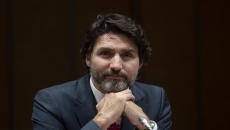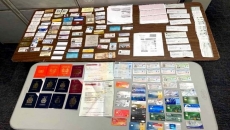Federal government proposals to relax penalties for personal drug possession are a positive step forward for Vancouver's former drug czar, but they're too small to address skyrocketing overdose deaths.
Donald MacPherson, director of the Canadian Drug Policy Coalition at Simon Fraser University, introduced the city's drug strategy in the 1990sand the same principles guidethe federal approach.
Today, he says that strategy isn't enough and governments also need to adopt policy that matches the scale of the emergency.
"Our policy framework has created a monster, really, which is a drug market laced with illegal fentanyl and its analogues," MacPherson said in an interview.
"It's a terrible example of a catastrophic failure of public policy, in my mind, which urgently needs to be modernized."
Last week, the federal government introduced a bill that would repeal mandatory minimum penalties for drug offences and some gun-related crimes that it said unfairly affect Indigenous and Black offenders.
The bill would allow for greater use of conditional sentences, such as counselling or treatment for people who do not pose a threat to public safety. It would also require police and prosecutors to consider alternative measures for cases of simple drug possession, including diversion to addiction-treatment programs.
The proposed legislation comes after British Columbia recorded 1,716 overdose deaths in 2020, the highest ever in a single year.
While a toxic drug supply has taken lives across the country, its toll has been most concentrated in B.C., making it home to some of Canada's most vocal advocates for change.
MacPherson said there are parallels with Canada's first severe overdose crisis in the late-1990s. It was compounded by an HIV crisis among injection drug users in B.C. and a health emergency was declared in 1997, although the death rate didn't approach that seen today, MacPherson said.
"We were sort of global pariahs. What was happening in such a good country as Canada that so many people could die of overdose deaths in British Columbia?"
It has been almost 20 years since Vancouver adopted the so-called Four Pillars drug strategy that MacPherson introduced as North America's first drug policy co-ordinator. The strategy focuses on prevention, harm reduction, treatment and enforcement. It originated in Europe and has also been used by Ottawa.
Four Pillars is an effective way to mobilize the community and co-ordinate response from three levels of government, but the missing piece is policy, MacPherson said.
There's an urgent need to decriminalize possession, concentrate enforcement on the illicit supply of drugs, regulate recovery facilities, reduce harm through a safe pharmaceutical supply, and invest in evidence-based treatment, he said.
Eliminating minimum penalties for possession is positive but it's an example of incremental change, like adding 100 new treatment beds when the scale of the problem is much bigger, he added.
"My reflection when we went to study the European examples was they had a disaster on their hands too. But at the time, in the '80s, they actually mustered the strength ... to respond in a way that was proportional to the problem," he said.
At the same time that B.C. has suffered the worst of the crisis, it's also positioned to be the seed of change, he said. MacPherson said he's hopeful Ottawa will entertain requests from Vancouver Mayor Kennedy Stewart and Premier John Horgan for exemptions that would allow decriminalization locally.
"We can't expect the same old same old to get us out of this," said MacPherson.
Leslie McBain of Moms Stop the Harm said the most troubling part of the federal government's approach on drug offence penalties would be the discretion it leaves to police and judges over charges and consequences.
"Are police and judges skilled enough and knowledgeable enough in addiction?" asked McBain, who is based in B.C. and has been a longtime advocate of drug policy change.
McBain said she worries that discretionary power could see people with a health problem funneled into the criminal justice system unnecessarily, increasing the harm they may face as well as the stigmatization.
"It also drives people into the shadows with their drug use, especially marginalized people," she said.
The Canadian Association of Chiefs of Police said its members are pleased the proposed legislation supports police discretion and the notion that resources should target organized crime groups and individuals who import, produce or distribute illegal drugs.
But for diversionary tactics to be effective, health and social services must be available for drug users to be diverted, the association said in a statement.
"As a result, the enactment of this bill must be accompanied by significant investments at all government levels to support the creation and ongoing operations of an infrastructure of services in communities across the country," it said.






